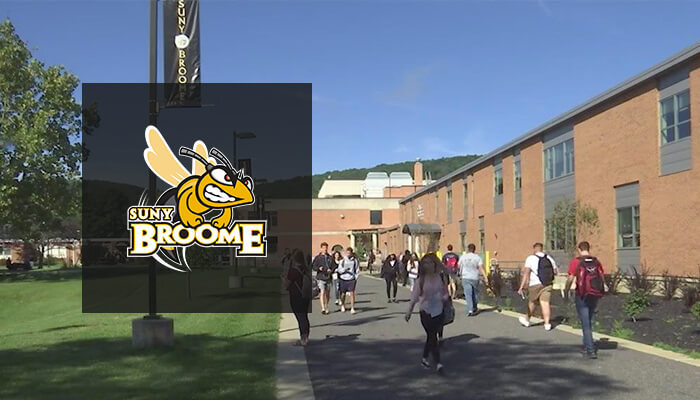
Northeastern State University Improves Persistence for “At-Promise” Students with Data-Informed Advising
Share this Post
At the foot of the Ozark Mountains in Tahlequah, Oklahoma, the main campus of Northeastern State University continues a long history as the oldest institution of higher learning in the state. Like many higher ed institutions facing the challenges of declining enrollment and retention—and the resulting financial instability caused by these declines—NSU is keenly focused on determining what initiatives and interventions impact student persistence and retention.
At NSU, students are only at-risk if there is no one at the institution proactively working to support them. In higher education, the common term used to describe students whose skill, knowledge, motivation, preparation, academic self-concept, personal choices, or other factors that may keep them from being successful is “at-risk.” NSU chooses to identify these students as “at-promise” because they believe they can help increase a student’s opportunity for success with the right support.
The NSU advising team utilizes the Civitas Learning Platform to uncover opportunities to better support students and monitor the impact of these new approaches. Under the direction of Julia Carlo, Executive Director of University Advising, NSU created a pilot program to study the impact of data-informed academic advising on student persistence.
The team observed a strong correlation between advising outreach driven by predictive analytics and student persistence, particularly among the bottom quartile of students. The pilot program yielded an average lift in persistence of 1.7% among the “at-promise” student population over three academic terms, resulting in 35 more students continuing on their academic journey toward graduation and an $80,804 gain in net tuition revenue.
Data-informed Outreach Boosts Student Outcomes and Creates Efficiencies
With advising caseloads of 250–350 per advisor, proactively identifying students needing additional support can be challenging. Without predictive analytics to identify struggling students and inform outreach efforts, NSU advisors may only see the students seeking advising services. Often, the students who need the most support are least likely to respond to mass email communications or use support on their own.

“Civitas Learning’s initiative analysis capabilities allowed us to show both our advisors and administration the value of advising at our institution.”
— Julia Carlo
Executive Director University Advising
Northeastern State university
NSU’s pilot program utilized persistence predictions available through the Civitas Learning Platform to identify the bottom quartile student population at the census date. Advisors in the pilot program tracked their outreach efforts to “at-promise” students. They monitored changes in student persistence prediction, updated throughout the semester based on real-time behavioral and academic data. This practice enabled advisors to conduct proactive outreach when a student’s persistence prediction changed, making it possible for advisors to be there for students when they needed additional support.
NSU’s pilot program results reinforce the power of data-activated outreach and student support. The “at-promise” students persisted at higher rates—an average of 1.7% higher across the three semesters of the pilot—when advisors utilized predictive analytics to inform outreach. NSU realized an $80,804 gain in net tuition revenue throughout the pilot program based on this boost in persistence.
In addition, NSU observed a few other desirable trends from data-informed advising and outreach practices.
1. At-Promise Students More Likely to Use Advising Services
NSU found that “at-promise” students were more likely to access advising services when advisors tracked their progress and conducted personalized outreach based on predictive analytics. Advisors participating in the pilot program were likelier to meet with their bottom quartile students. They were also more likely to have met with students across all quartiles, while advisors employing more traditional means of outreach were more likely to serve students in the top quartile.
2. Increase in Student Engagement with Advising Services
NSU advisors observed that students who received more personalized outreach from their advisors were more likely to drop by to provide informal updates. Rather than waiting for an email calling them in for advising, students felt comfortable stopping by their advisor’s office, strengthening the bond between advisor and student and creating a more personalized student experience.
3. Providing a Unified Source of Information Eased Case Management
NSU advisors were accustomed to gathering information from multiple reports drawn from the university’s Student Information System to track changes to their caseloads when students change majors or leave the institution. The Civitas Learning Platform helps leaders provide advisors with a more unified, streamlined, and up-to-date source of information to manage their caseloads. Creating these efficiencies for advisors frees them to spend more time directly supporting students.
Expanding Data-informed Advising Across Campus
With the Civitas Learning Platform, leaders like Julia Carlo identify and communicate what strategies are moving the needle on student success at their institutions.
Backed by the demonstrated results from the pilot program, Carlo has helped other campus stakeholders and advisors understand the impact of data-informed advising at NSU. “Civitas Learning initiative analysis allowed us to show both the advisors and our administration the value of advising at our institution,” says Carlo. Knowing what works for their students, advisors at NSU can now confidently focus on expanding these practices to better support all NSU students.
Resource-constrained institutions seeking effective and sustainable solutions to declining enrollment, persistence, and retention need a reliable way to measure the true impact of student success initiatives. With specific results, like those achieved at NSU, leaders know that their efforts and resources support the right initiatives to improve student success and achieve institutional goals.


